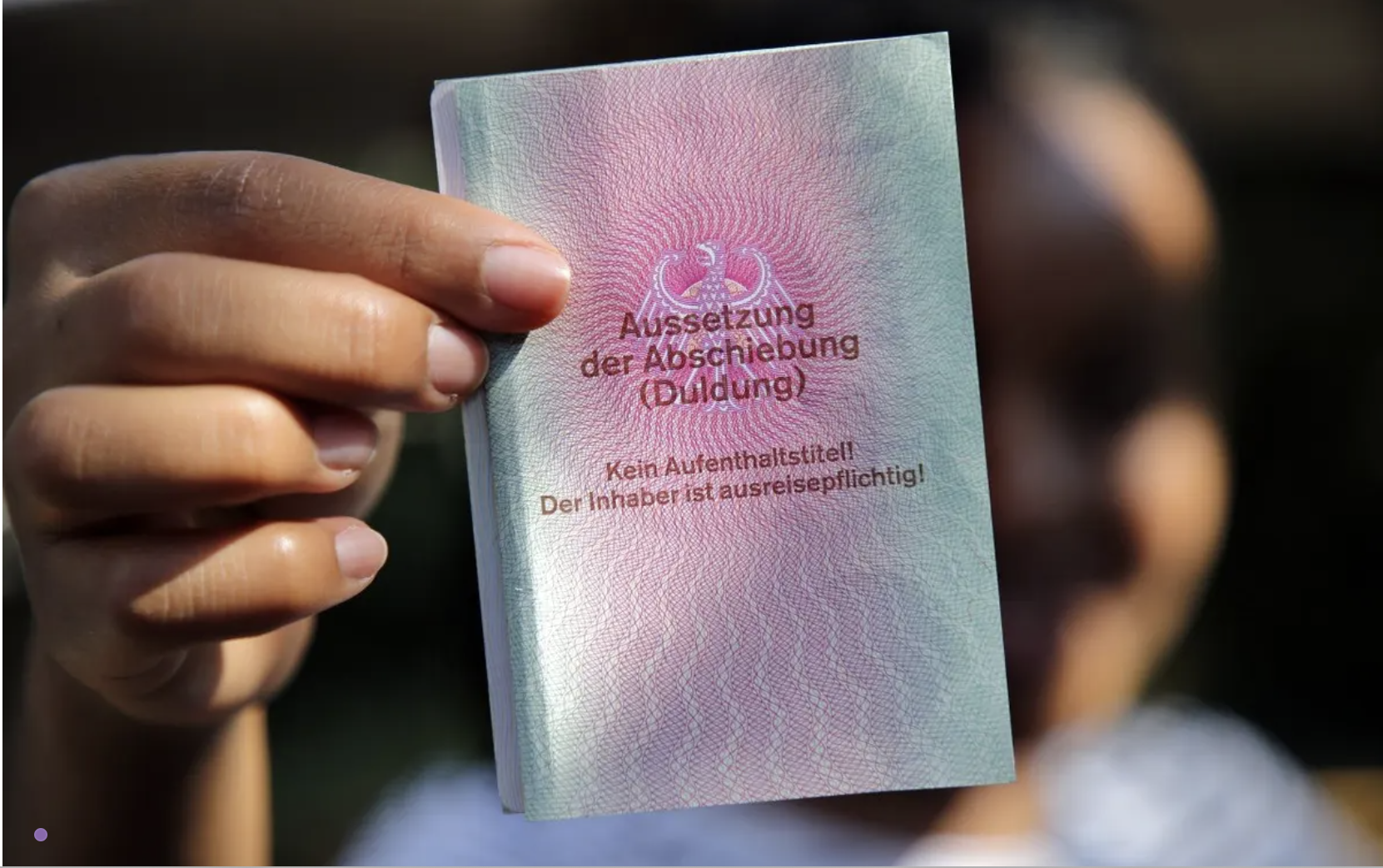Published
4 months agoon

Germany has long been a country that values diversity and inclusion, but for many migrants, especially those in “tolerated” status, their future in the country has often been uncertain. However, a significant change is on the horizon. The German government is moving forward with legislation that could offer a clearer pathway to permanent residency for individuals with “Duldung” (tolerated status). This change is a crucial step in improving the lives of thousands of long-term residents, fostering their integration into society, and providing a more inclusive future for migrants in Germany.
The term “Duldung” refers to a temporary suspension of deportation for individuals who have been in Germany for extended periods but are not allowed to stay permanently due to various reasons such as lacking valid travel documents, facing unsafe conditions in their home country, or other legal obstacles. While “Duldung” status allows these individuals to remain in Germany, it doesn’t offer permanent residency rights or a clear path to citizenship, leaving many living in a state of limbo.
For years, people living under “Duldung” status faced an uncertain future, struggling to gain employment, access social services, and plan long-term. However, recent developments in Germany’s immigration policy are changing the narrative.

Christophe Gateau
In December 2022, Germany passed a groundbreaking law known as the Chancen-Aufenthaltsrecht (Opportunity Residence Act). This act provides a much-needed lifeline for individuals who have been living in the country under “Duldung” status for an extended period. It is designed to allow those who meet specific criteria to gain an 18-month residence permit, during which time they can demonstrate their integration into German society and work toward permanent residency.
This new law could be a game-changer for thousands of migrants who have lived in Germany for years but lacked a clear path to stay. The residence permit will allow them more access to work opportunities, social services, and greater stability, ultimately paving the way for permanent residency after meeting additional requirements.
To qualify for the new residency permit, individuals must meet several requirements:
The Opportunity Residence Act is a major step in Germany’s efforts to address the challenges faced by long-term migrants. By offering a path to permanent residency, the law acknowledges the contributions of individuals who have already integrated into the workforce, paid taxes, and made their homes in the country. It’s also a step toward social cohesion, reducing the feelings of uncertainty and exclusion that many migrants have lived with.
Providing these migrants with the opportunity to apply for permanent residency can lead to a more inclusive society, where people are no longer seen as temporary residents but as valuable contributors to the country. Furthermore, this reform aligns with Germany’s broader goals of improving integration, particularly in an era of heightened migration and demographic challenges.
While the law is being hailed as a progressive step, it has also faced criticism from some quarters. One of the primary concerns is that the eligibility requirements, such as proving identity, may be difficult for many individuals who fled war-torn countries and lost their documents. Additionally, the need for language proficiency could exclude migrants who have not had the resources or opportunities to learn German adequately.
Moreover, there is concern that some long-term residents who do not meet the criteria, even though they have been living in Germany for years, could still be excluded from the new opportunities. Advocates for migrants are calling for a more flexible approach, particularly for those who have made efforts to integrate but might not meet every requirement.
The opportunity for “tolerated” migrants to gain residency rights in Germany represents a crucial step forward in the country’s immigration policy. It’s a win for both the migrants who will finally have a clearer future and for Germany, which will benefit from a more integrated, stable, and diverse society.
As the new law is implemented, it will be important to monitor its impact. How will it affect the lives of those who have long awaited such an opportunity? Will it provide a model for other European countries to follow? Only time will tell, but one thing is certain: this change is a significant milestone in Germany’s ongoing efforts to create a fairer, more inclusive society for all.


Germany’s New Coalition Government Unveils Stricter Immigration and Citizenship Policies


Mass Protests Erupt in South Korea Over President Yoon’s ImpeachmentAFP


EU Representatives Agree on New Driving License Rules


Erdogan Calls Turkey Protests ‘Evil’ as Unrest Escalates


Former U.S. Attorney Jessica Aber Found Dead at 43


UN Reduces Staff Presence in Gaza Due to Security Concerns


US Government’s Security Blunder: Journalist Accidentally Invited to Secret Chat










